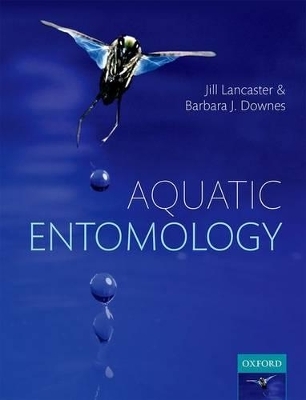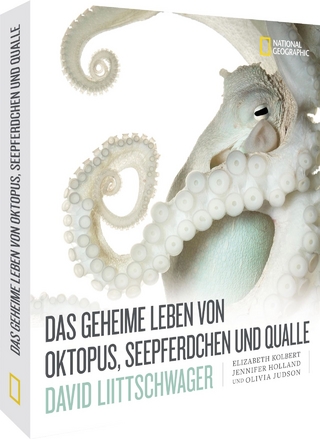
Aquatic Entomology
Oxford University Press (Verlag)
978-0-19-957321-9 (ISBN)
Aquatic insects are the dominant invertebrate fauna in most freshwater ecosystems, and figure prominently in the work of a diverse range of researchers, students, and environmental managers. Often employed as indicators of ecosystem health, aquatic insects are also commonly used as model systems to test hypotheses in ecological topics including metapopulation and metacommunity dynamics, recruitment limitation, trophic interactions, and trophic networks. Due to their complex life cycles, aquatic insects must master both terrestrial and aquatic environments, crossing these ecosystem boundaries during different stages of development and reproduction.
In this wide-ranging text, life under and on top of the water surface are covered in unusual detail, including the biomechanics of life in water, locomotion underwater and on surface films, gas exchange, physico-chemical stressors, feeding, sensory perception and communication, reproduction, egg-laying and development, and the evolution of aquatic habits. The threatened status of freshwaters around the world, coupled with an expanding population of researchers and managers charged with their well-being, signals the importance of such a book as many individuals seek to understand how insects function in these often challenging physical environments. Interest in freshwaters may never have been higher with ever-increasing conflict between water allocation for human (agricultural) use and conservation.
Aquatic Entomology is suitable for graduate students, researchers, and managers interested in the subject from a perspective of either basic or applied ecology. It will also be a valuable supplementary text for courses in limnology or freshwater ecology, entomology, and water resource management.
Jill Lancaster is a freshwater ecologist with a long-standing interest in aquatic insects. She received her PhD from the University of London, and held academic positions at the University of Edinburgh and Monash University, until becoming semi-retired and an honorary Principal Research Fellow at the University of Melbourne. In general, Lancaster's research uses freshwater systems and aquatic invertebrates to empirically test ideas in population and community ecology. An over-arching theme lies in understanding how interactions between the physical environment and biological processes influence ecological systems. She has published many peer-reviewed papers in international journals and held editorial positions for several journals. Barbara Downes is an aquatic ecologist who has worked in a wide range of different ecosystems including lowland rivers, upland streams, wetlands, and intertidal and subtidal rocky reefs. She received her PhD from Florida State University in 1988 and, after several postdoctoral fellowships, joined the University of Melbourne in 1995, where she has remained ever since. Her research seeks to understand factors that limit population numbers and that maintain species diversity in freshwater systems. Her interest in insects springs from a fascination with species having complex life cycles that span both freshwater and terrestrial environments. She has published numerous peer-reviewed papers and two books and has served as an editor for several international journals.
PART 1 - INTRODUCTION TO AQUATIC INSECTS; PART 2 - ENVIRONMENTAL CONSTRAINTS ON DISTRIBUTION; PART 3 - SENSORY SYSTEMS, MOVEMENT, AND DISPERSAL; PART 4 - POPULATION DYNAMICS AND POPULATION PERSISTENCE; PART 5 - TROPHIC RELATIONSHIPS
| Verlagsort | Oxford |
|---|---|
| Sprache | englisch |
| Maße | 197 x 247 mm |
| Gewicht | 824 g |
| Themenwelt | Naturwissenschaften ► Biologie ► Limnologie / Meeresbiologie |
| Naturwissenschaften ► Biologie ► Zoologie | |
| ISBN-10 | 0-19-957321-2 / 0199573212 |
| ISBN-13 | 978-0-19-957321-9 / 9780199573219 |
| Zustand | Neuware |
| Haben Sie eine Frage zum Produkt? |
aus dem Bereich


